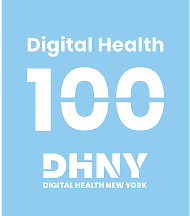
By Dena M. Bravata, MD, MS
When you think of women’s health, what comes to mind?
Most people think of fertility, pregnancy, breast health, or menopause. But there’s one critical area of women’s health that rarely comes to mind: digestive health.
Women are more likely to experience GI issues and suffer in silence
From irritable bowel syndrome (IBS) to pregnancy-related gastrointestinal (GI) symptoms to the complex changes of menopause, women face a disproportionately high burden of gastrointestinal conditions. Yet these challenges too often go unaddressed, especially in the workplace.
Research shows women are significantly more likely than men to experience chronic digestive disorders including:
- IBS is 2 to 6 times more common in women than men.
- Gastroparesis, a condition that slows digestion, affects women up to 4 times more often than men.
- Women are more likely to suffer from autoimmune GI diseases, including Crohn’s and celiac disease.
- Chronic constipation, indigestion, and heartburn are also reported more frequently in women, often worsened by hormonal changes.
Among most US adults, frank conversations about bowel habits and digestive issues are rare. As a result, GI conditions aren’t just clinical—they’re personal, disruptive, and stigmatized. And for many women, the workplace only adds another layer of embarrassment and stigma. In Cylinder’s Gut Health in the Workplace survey, women reported significantly more hesitance than men when it comes to discussing digestive symptoms with their managers. Additionally, although GI illness has been a top-10 area of health care spending for employers, few have implemented programs to help employees manage chronic digestive issues.

A care model built for women, across life stages
Cylinder offers personalized digestive health care that meets women where they are—at every life stage. Because digestive needs change with life and it’s never a one-size-fits-all model. With 65% of members identifying as women, and up to almost 90% in some clients Cylinder’s care pathways are designed to reflect the unique GI needs women face.
During pregnancy
Pregnancy can often intensify GI symptoms, particularly for women already managing pre-existing digestive conditions. For expecting parents, Cylinder offers comprehensive support tailored to their unique needs. This includes nutrition guidance from registered dietitians, lifestyle coaching to help manage stress and symptoms, and coordinated care with OB/GYNs and GI specialists to ensure a safe, well-rounded approach throughout pregnancy
Through menopause
As estrogen and progesterone levels decline during menopause, many women experience changes in digestion, metabolism, and sleep. Cylinder’s menopause protocols are designed to address these shifts with targeted, supportive care. They offer personalized nutrition counseling, often centered on fiber-rich, Mediterranean-style eating, alongside symptom relief strategies for issues like hot flashes and insomnia. Its program also includes strength training routines to help reduce visceral fat and support long-term metabolic health.
Women engage more and experience better outcomes with Cylinder
Cylinder data shows that women not only engage more frequently with its platform, but also report better outcomes:
- 88% of women members said Cylinder helped manage their digestive symptoms (vs. 83% overall)
- 86% of women felt more in control of their health (vs. 83% overall)
- Among women ages 18–35, 87% reported symptom improvement, and utilization dropped by over 30% for inpatient care and emergency visits.
Certified by researchers at Johns Hopkins, an outcomes study with Cylinder’s client Metro Nashville Public Schools demonstrated over $2,100 per member per year in cost savings for women. Those savings were even higher among those with pre-existing GI diagnoses, and among women with moderate or severe symptoms.

It’s time to close the gap in women’s digestive health
Digestive health is women’s health. And for employers and health plans, prioritizing GI care is more than a wellness benefit—it’s a strategy to improve quality of life, reduce high-cost utilization, and support retention and productivity.







